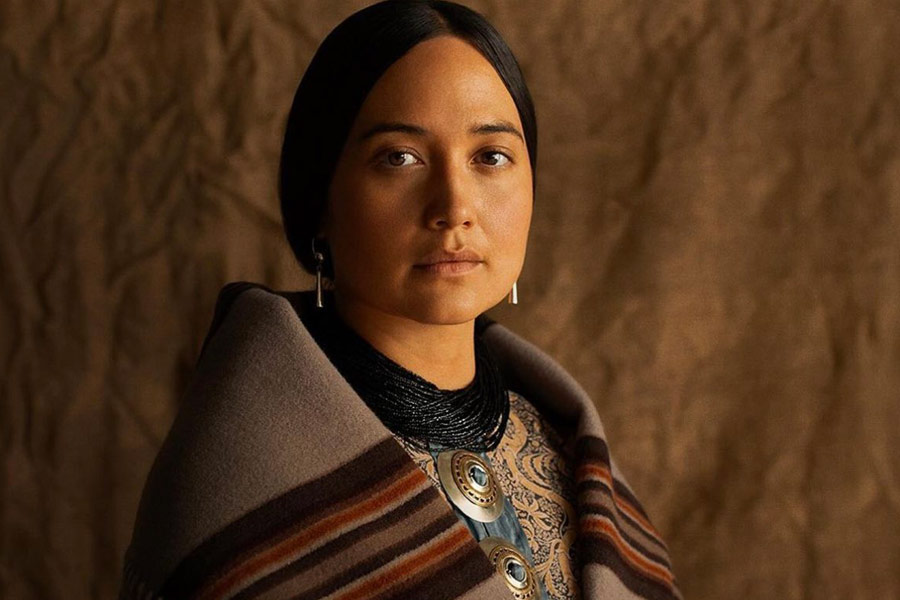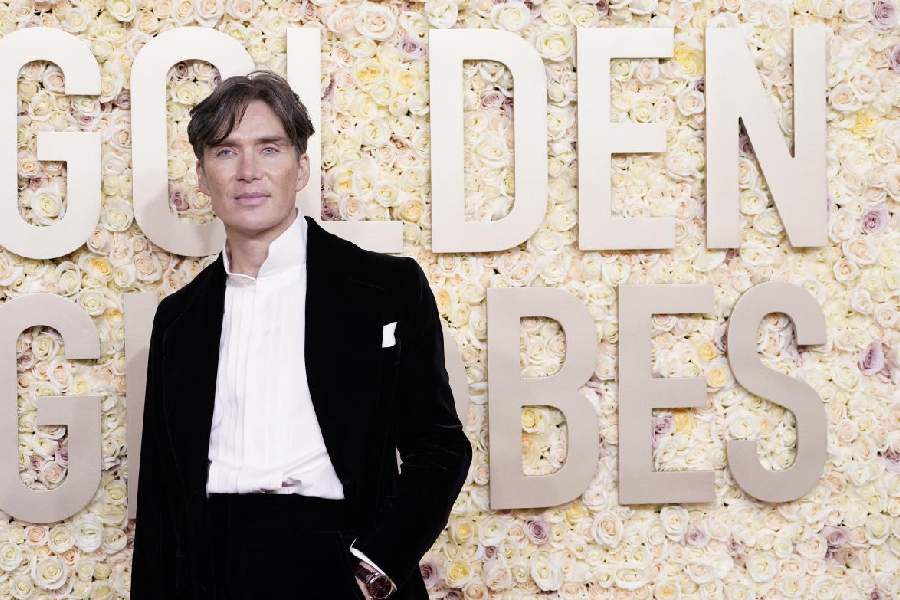In a history-making triumph, Lily Gladstone has become the first Indigenous person to win a Golden Globe for best actress, said a spokesperson for the organization that hands out the awards.
Gladstone played Mollie Burkhart, an Osage woman whose family members are murdered as part of a plot to take their fortune, in Martin Scorsese’s “Killers of the Flower Moon.” Gladstone, whose background is Blackfeet and Nez Percé, is only the second Native actress to receive any recognition from the Globes: Irene Bedard was nominated in 1995 for “Lakota Woman: Siege at Wounded Knee,” a television movie.
After an ovation, an overcome Gladstone spoke a few lines in the Blackfeet language, “the beautiful community nation that raised me, that encouraged me to keep going, keep doing this,” she said in English. She also thanked her director and co-stars, including Leonardo DiCaprio and Robert De Niro, then dedicated the award to “every little rez kid” who had a dream.
Here’s her speech:
“I love everyone in this room right now, thank you. I don’t have words. I just spoke a bit of Blackfeet language, the beautiful community nation that raised me, that encouraged me to keep going, keep doing this. To my mom, who even though she’s not Blackfeet worked tirelessly to get our language into our classroom, so I had a Blackfeet language teacher growing up.
“… I’m so grateful that I can speak even a little bit of my language, which I’m not fluent enough here, because in this business Native actors used to speak their lines in English and then the sound mixers would run them backwards to accomplish Native languages on camera. This is an historic one. It doesn’t belong to just me. I’m holding it right now, I’m holding it with all my beautiful sisters in the film and my mother [in the film], Tantoo Cardinal.
“… Thank you, thank you, Marty. Thank you, Leo. Thank you, Bob. You are all changing things. Thank you for being such allies. Thank you, Eric [Roth, the co-screenwriter]. Thank you, Chief Standing Bear … and the Osage Nation.
“… This is for every little rez kid, every little urban kid, every little Native kid who has a dream, who is seeing themselves represented and our stories told by ourselves in our own words with tremendous allies and tremendous trust with and from each other. Thank you all so much.”
Whether Gladstone is the first Indigenous person to win a Globe overall, that is unclear. Singer Buffy Sainte-Marie, who has said she was born to an Indigenous woman, won a Golden Globe in 1983 for the song “Up Where We Belong” from the movie “An Officer and a Gentleman.” But her heritage has recently been disputed.
There have been other Indigenous nominees. This year, late musician Robbie Robertson, who was Mohawk and Cayuga, was nominated for original score for “Killers of the Flower Moon.” (He lost to Ludwig Göransson for “Oppenheimer.”) Going further back, Chief Dan George was nominated for the 1970 comic Western “Little Big Man” and Adam Beach for the 2007 television adaptation “Bury My Heart at Wounded Knee.”
“Killers of the Flower Moon,” based on the nonfiction book by David Grann, was reconceived early on to focus on the relationship between Mollie and her husband, Ernest (played by DiCaprio), who is engaged in the conspiracy to kill her relatives.
The New York Times News Service












